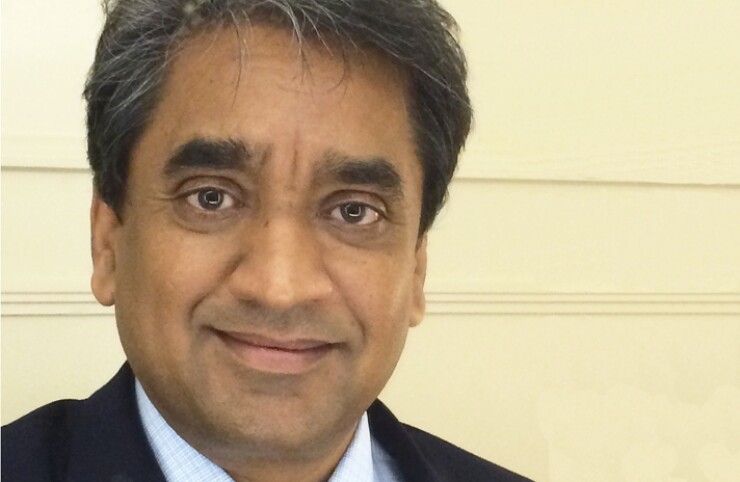
Banking is more trusted today than at any time since the 2007-2008 financial crisis, although the developing world appears to hold its banks in higher regard than more established countries, including the United States.
Those are the conclusions of an annual survey released recently by Edelman Smithfield, a New York-based boutique financial communications firm. According to
Edelman's Trust Barometer grades public and private institutions on a 100-point scale with 60 considered the threshold for trusted status.
"It's encouraging to see banks finally back in that trusted category, and really continuing to build trust as we move forward," Sean Neary, Edelman's co-head of U.S. financial services, said of the report's findings.
Interestingly, ratings for the banking systems in so-called G-7 nations, those with the most advanced economies, lagged less wealthy countries. Malaysia, Thailand, Kenya, Nigeria and South Africa ranked significantly better than the United States, which scored a 62. Canada, the highest-scoring G-7 country, received a 66.
Globally, men rated banks more highly than women. Similarly, younger respondents, in the 18 to 34 age range, were more trusting than those aged 55 and up. In all, Edelman surveyed more than 32,000 people in 28 countries for its 2024 Trust Barometer. The results, released earlier this month, represent a noteworthy turnaround for banks, according to Cetin Duransoy, CEO of the online savings platform Raisin USA.
"There has always been a large degree of trust in the Federal Deposit Insurance Corp., but certainly the reputation of [U.S.] banks in general after the 2008 banking crisis and subsequent bailouts took a hit," Duransoy said. "It's a positive for institutions at large that this stain seems to have lifted for the first time since the bailouts."
Among sectors of the financial services industry, banks scored best, eclipsing insurance, financial advisors and investment managers. Cryptocurrency and digital assets ranked lowest, receiving a score of 35.
The Edelman Trust Barometer and surveys like it are "useful to measure public opinion and lay a road map for the future," Duransoy said. "Trust is the most important factor when people are handing over their life savings. Building trust, reinforcing a commitment to transparency and listening to core constituencies are all practices banks should hone in on for success."
Similarly, Paul Schaus, founder and CEO of Phoenix-based consulting firm CCG Catalyst, said Edelman's survey could be a useful planning tool for banks mapping out their strategies. "If you're a banker sitting with your executive team and board, this is helpful," Schaus said.
He added that it came as no surprise that respondents from G-7 countries, with more wealth and higher expectations, would view banks more skeptically. "They're more conservative in their line of thinking," Schaus said, adding that banking is seen as a more routine part of everyday life in developed countries and, therefore, may have less of a lasting positive impression on consumers.
Perception of banks in the U.S. was likely colored by the spate of failures in spring 2023 which weighed on sentiment, according to

While Edelman's survey was more upbeat generally, some observers viewed its results in a less positive light. Scores in the 60s mean plenty of people still harbor negative views about banks, said Suresh Ramamurthi, chairman of the $91 million-asset CBW Bank in Weir, Kansas. This skepticism also helps explain the "ubundling" that has taken place over the past decade, with a growing share of loans and deposits moving outside of traditional banking, Ramamurthi added.
"Short of 100%, banks have failed the trust test," Ramamurthi said.
Though Edelman Smithfield CEO Lex Suvanto said in a press release the financial services industry "still has a long way to go to reach solid footing in trusted territory," Neary saw the overall improvement in banks' survey scores as a sign things are "moving in the right direction."
"Amid all the economic uncertainty of this past year, the sector really remains strong," Neary said. "It has served as a stabilizing force, something that we can count on."






